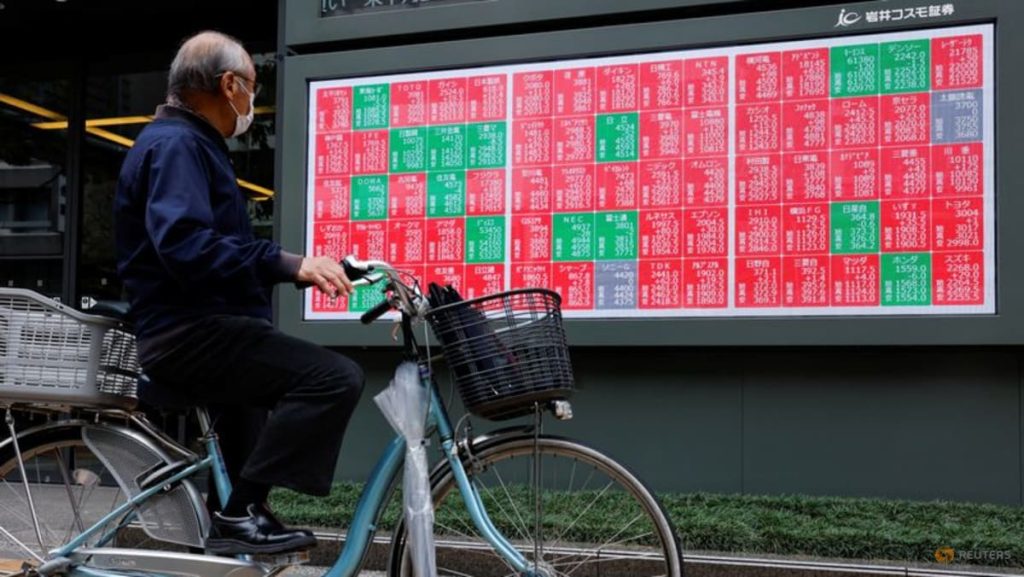TOKYO :Japan’s Nikkei share gauge extended its record-breaking rally on Tuesday as fiscal dove Sanae Takaichi cleared a parliamentary vote to become the nation’s next prime minister.
The Nikkei 225 Index was last up 0.4 per cent to 49,404.66, poised for a record high close. It earlier rose as high as 1.55 per cent before trimming gains after the vote. The broader Topix gauge was up 0.1 per cent, while reaction in the Japanese government bond market was muted.
As she campaigned for and won the leadership of the ruling Liberal Democratic Party on October 4, the so-called “Takaichi trade” emerged that was bullish on equities and bearish for long-term bonds and the yen. But her ascent to the prime minister’s seat was delayed after long-time political partner Komeito split from the coalition.
The Nikkei soared on Monday after the LDP secured a new partner in the Japan Innovation Party, known as Ishin, to firm up Takaichi’s support in the Diet.
The coalition will still be a minority in government, which may limit the scope of their fiscal plans, according to Mizuho Securities senior market economist Yusuke Matsuo.
“We think the administration will be compelled to take a pragmatic approach to economic policy and do not expect the Takaichi trade to gain significant traction in the medium term,” Matsuo wrote in a note.
Takaichi received 237 votes in a lower house vote on Tuesday, topping the majority of the 465-seat chamber. Market attention now turns to who may fill out her cabinet for signs of how the new government will approach spending and debt management.
The new prime minister has finalised a plan to appoint former regional revitalisation minister, Satsuki Katayama, as finance minister, broadcaster FNN reported on Tuesday.
There were 148 advancers on the Nikkei index against 74 decliners.
The largest percentage gainers on the index were video game maker DeNA that gained 6.3 per cent, followed by Renesas Electronics, which added 4.5 per cent.
The benchmark 10-year JGB yield fell 0.5 basis point to 1.66 per cent. The two-year yield declined 1 bp to 0.935 per cent.
The yen slid 0.2 per cent to 151.08 to the U.S. dollar.


